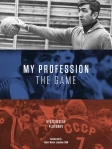I am on record over the years of saying the Champions League Final Four is the best weekend of the volleyball year. The reasons are partly obvious, the best club teams in Europe gather to play the highest level volleyball, and partly behind the scenes, it is a gathering of all the movers and shakers of European volleyball. And of course when people gather to celebrate volleyball, there is a little party atmosphere going on too.
Sadly (only a little bit because it means I am still playing in my own league) I couldn’t attend in person this year, so the following observations are only the sporting ones, courtesy of laola1.tv. In no particular order…
Serving is really, really important. The ability to serve aces is the cornerstone of Russian, and therefore world, volleyball right now and the number of errors that accompany that kind of service pressure often seems incidental, if not totally unimportant. The Belgorod team of Travica, Ilinykh, Grozer, Musersky and Tetyukhin was akin to a murderers row of servers. Even if the first four made errors, you still couldn’t relax when the fifth one came up to serve.
Volleyball is coming into the 21st Century A lot of the volleyball at the 2012 Olympics was boring and predictable, with reducing errors the primary concern. Since then there has been a massive generational change and younger, more athletic players are being allowed to be more aggressive by their coaches. This ‘movement’ was exemplified at this tournament by Jastrzębski Węgiel, in particular by Michal Kubiak and setter Michal Masny. The play is getting faster and riskier and in the bronze medal playoff was rewarded. I especially liked seeing an outside hitter hitting first tempo in transition.
Tetyukhin was rightly awarded the MVP trophy, not just for his service series that turned the fourth set in the final and won the match. He has been a great player for a long, long time now but it seems that he has only started to receive due recognition in the last couple of years. In this tournament he was a player in complete command of himself and the game and a master of the little plays and big moments. I think it is completely fair at this point to put him in the conversation with Karch Kiraly and Lorenzo Bernardi as the greatest player in history. The conversation is a short one because the answer is Karch, but it is a bit longer than it was.
Musersky We should enjoy the best player in history conversations as much as we can while it is still possible. Musersky showed again, without even being at his best, that he is ‘on pace’ to take Karch’s title. No player in history has had such an effect on the game in every phase. He is the best server, best attacker and best blocker. He can play defence when required and sets fast balls in transition. He is a joy to watch, not least because there is joy in his play.
Video Challenge System is (thankfully) here to stay, although what it’s final form will be is still unclear. In this tournament they used the Italian version which only allows in and out reviews and some net touches. The Polish system allows for reviews of nearly everything and is therefore better, but also more cumbersome. The number of successful challenges against the home team, particularly on the far sideline from the TV perspective, showed its value in improving the fairness of the games, which must be the ultimate judge. The system is not (yet) infallible. I don’t know what brain fart (human or technological) resulted in not overturning the line judge at 2-1 in the fourth, but overall it is very positive.
Part two here.
__________________________________________________________________________________________________
Read about the great new Vyacheslav Platonov coaching book here.


Sorry to be a pedant but the position is a Line Judge not linesman. Even in football they are now called Assistant Referees.
LikeLike
I did not know that. Thank you, Tony. Correction to follow.
LikeLike